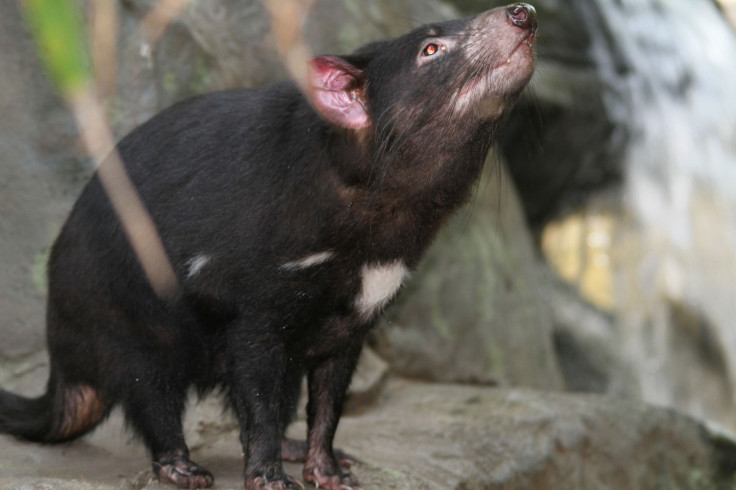New Form Of Contagious Cancer Discovered In Tasmanian Devils: What This Means For Humans

It’s rather strange to hear the words “cancer” and “contagious” in the same sentence; in humans, cancer is certainly not contagious, according to the American Cancer Society. A transmissible form of cancer does exist, however, even though it’s rarely found in nature — and so far only discovered in Tasmanian devils and dogs.
Now, researchers from the University of Cambridge have identified a second type of transmissible cancer among Tasmanian devils. In their study published in the journal Proceedings of the National Academy of Science, the researchers examined how cancers grow to become transmissible — and question whether they’re as rare as they seem.
“Until now, we’ve always thought that transmissible cancers arise extremely rarely in nature,” Dr. Elizabeth Murchison of the Department of Veterinary Medicine at the University of Cambridge, senior author of the study, said in the press release, “but this new discovery makes us question this belief.”
Researchers found a Tasmanian devil with facial tumors in south-east Tasmania in 2014. Upon closer examination, they found that the cancer had different genetics and chromosomes than the original cancer that had been identified years earlier.
“The second cancer causes tumors on the fact that are outwardly indistinguishable from the previously-discovered cancer,” Dr. Ruth Pye of the Menzies Institute for Medical Research at the University of Tasmania, an author of the study, said in the press release. “So far it has been detected in eight devils in the south-east of Tasmania.”
Transmissible cancer in Tasmanian devils is believed to be spread by biting behavior among the animals. It causes tumors and lesions on the face, and typically always kills the animal. Because it can wipe out a large population of devils, researchers have been administering a vaccine for the disease since it was discovered.
“Previously, we thought that Tasmanian devils were extremely unlucky to have fallen victim to a single runaway cancer that emerged from one individual devil and spread through the devil population by biting,” Dr. Elizabeth Murchison of the Department of Veterinary Medicine at the University of Cambridge, senior author of the study, said in the press release. “However, now that we have discovered that this has happened a second time, it makes us wonder if Tasmanian devils might be particularly vulnerable to developing this type of disease, or that transmissible cancers may not be as rare in nature as we previously thought.”
According to a 2009 review in Nature Oncogene, tasmanian devil facial tumor disease (DFTD) and canine transmissible venereal tumor (CTVT) are the only known transmissible cancers in nature. Animals can actually transfer tumor cells to one another, whereas in human cancer patients, that’s impossible.
It’s important to note that humans can’t be affected by this contagious form of cancer, however, even if they’re in contact with an infected animal. The researchers will continue to vaccinate Tasmanian devils and search for any more transmissible cancer lineages in nature.
Source: Pye R, Pemberton D, Tovar C, Tubio J, Dun K, Fox S. A second transmissible cancer in Tasmanian devils. Proceedings of the National Academy of Sciences of the United States of America, 2015.
Published by Medicaldaily.com



























